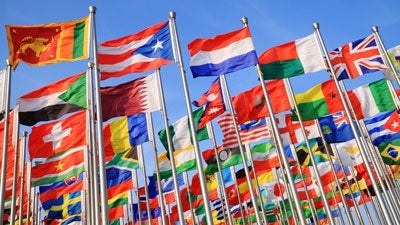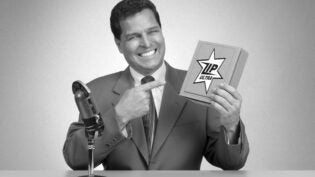
In an attempt to improve street credibility, Pepsi kicked off the 1960s with a new marketing slogan that would help it compete with Coca-Cola: “Come alive! You’re in the Pepsi generation.” The campaign appeared to work, helping Pepsi gain valuable market share in America and many other English speaking countries.
The carbonated soft drink wasn’t selling quite so well in China, however. The reason? The slogan had been mistranslated to declare “Pepsi Brings Your Ancestors Back from the Dead.” While there is some healthy debate about the truth of the tale, it has entered marketing folklore anyway, and remains a powerful reminder of why businesses, no matter how big, should take extra careful when dipping their toes into foreign waters.
Related Article: Cultural Sensitivity: How to Approach International Executives
Pepsi isn’t the only company to have made a faux pas when it comes to translating their marketing campaigns. These are other marketing translation gaffes that prove every letter counts.
Do Nothing: HSBC Bank
“Assume Nothing” used to be the tagline of the world’s private bank, HSBC. Unfortunately, the United Kingdom based bank failed to take heed of its own advice, assuming that the tagline would translate well to other languages. When it was discovered that “Assume Nothing” was being translated as “Do Nothing,” the banking behemoth set about rebranding itself—at a cost of $10 million.
Sucks Like an Electrolux
Swedish appliance manufacturer Electrolux was eyed with suspicion in the US market when it advertised its vacuum cleaners by boasting that “Nothing sucks like an Electrolux.” While excellent sucking power is obviously an advantage for a vacuum cleaner, it appears whoever decided on the English phrase wasn’t aware that to “suck” at something also means to be perform poorly.
It Won’t Impregnate You
When Parker Pen wanted to enter the Mexican market they focused on the quality of their biros, telling people they wouldn’t “leak in your pocket and embarrass you.” But it was Parker Pen that would be left red-faced when a translating error meant the tagline read “Won’t leak in your pocket and impregnate you.” While you’d forgive a student of the language for thinking embarazará might mean embarrass, you’d think a company known for making writing tools would have at least double checked their translations before signing off their adverts.
Tiny Genitals and No-Gos
There’s a long list of car manufacturers that had to hastily change the name of a model once they realized just how much offence it caused.
The Mitsubishi Pajero was renamed the Montero in Spain (pajero means ‘wanker’ in Spanish), while the Honda Fitta didn’t last long in Sweden as fitta is a word for the female genitals (it’s now sold as the Honda Jazz).
First place in the awful car name race has to go to the Ford Pinto, however, which in Brazil is slang for “tiny male genitals.” In an attempt to reassure drivers of the car that their manhood was intact, they changed the name of the model to the Corcel—which means horse.
A House Full of Mistranslations
Anybody that’s ever shopped in Ikea will be aware that the strange-sounding Swedish names of the furniture and other products are all part of the charm. When these names get translated into other languages the result isn’t always so charming, however. Take Lufsig, a toy wolf with a name that means “clumsy” in Swedish. Translated into Mandarin the new name was inoffensive—but in Cantonese the name of the toy which is pronounced as Lo Mo Sai sounds like an extremely vulgar term for a mother’s genitals. Surprisingly, the children’s toy with a vulgar name sold out in Hong Kong because it became a symbol of political defiance.
What can your small business learn from these global mistakes?
If the biggest companies in the world can make mistakes localizing their products so can you. But you don’t have to. By investing enough time and effort into launching your product in new markets by using certified translations and testing your translations on native speakers there’s no reason you can’t take advantage of the millions of extra customers waiting around the world.
Author: Stephen Pritchard writes for 7Brands, a translation agency based in New York with expertise in more than 200 languages.
Published: January 14, 2015
2474 Views
2474 Views












